Imagine any sporting events you have previously attended; can you hear the trash-talking, booing, or even see a player throwing his hands up at a bad call? Even if this is your first time on the court, chances are you have already experienced bad sportsmanship.
Sportsmanship is defined in the Cambridge Dictionary as “the quality of showing fairness, respect, and generosity toward the opposing team or player and for the sport itself when competing”. Although sportsmanship is commonly only equated to the athlete, it also extends to the umpires, fans, coaches and parents of the athletes. It is a quality that is practiced on and off the court, until it is executed as if by muscle memory alone.
So how do you deal with bad sportsmanship? Perhaps the first rule of thumb is you cannot control another’s actions, only your own. With that in mind, we will explore self-accountability and navigating toxic environments to pave the road through and out of a bad sportsmanship experience.
Self-Accountability
Sports and business often mimic each other. The lessons you learn on the court translate nicely to your future career, so it is not surprising a Forbes contributor describes self-accountability the same way a coach would as “the belief that you are fully responsible for your own actions and consequences.”
New athletes, or those who have not yet been introduced to the concept of accountability, tend to place blame when things do not go their way. This is the Achilles’ heel of new and seasoned athletes alike.
A lack of self-accountability breeds the start of negative sportsmanship. It takes little imagination to see the athlete throwing a fit because she was taken out of rotation or the superstar blaming someone else for missing a block. These are the cracks of a cohesive, respectable team.
To deflect the effect of bad sportsmanship, or to prevent being the one to cause it, self-accountability is crucial. To grow, we must look inside as much as we look out; fixing ourselves before we critique another.
Control your reactions
Circling back to our previous rule of thumb– you cannot control another person’s actions, only your reaction. The difficulty in this statement is the herd mentality concept. In short, we as humans tend to react to situations in ways we would not normally based upon what those around us are doing.
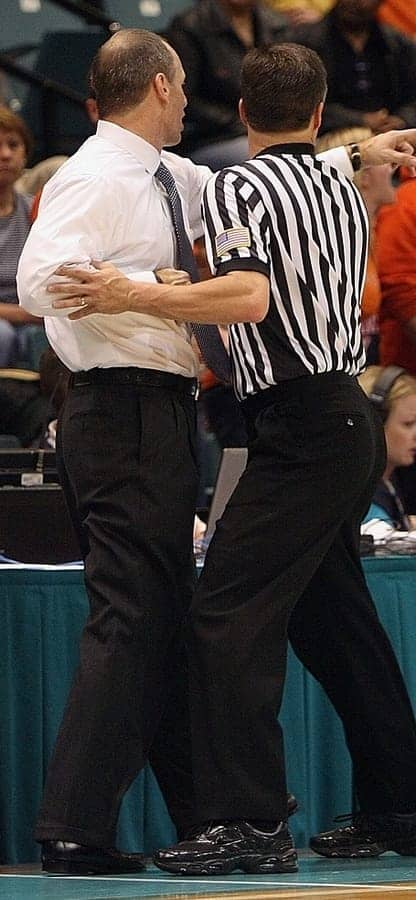
In the sportsmanship world, when a handful of our teammates are pushing back verbally on a call, it is natural to listen to what they are saying. Often listening then turns to believing and thinking the same way. Before you know it, blaming, questioning calls and an overall negative feel has developed.
To stop herd mentality and to take back your reactions is to be mindful of the constant narrator in your mind. Ask yourself about the situation and if your thought toward it will grow you or hinder you? Is the way you are feeling impacting yourself and others positively? If you were put into rotation in this frame of mind, would you be representing your team, school or self in the best light?
While this sounds great, how do we actually go about changing our reactions? Like most things worthwhile, it is easier said than done, but not impossible.
Redirect your focus
By being aware of why you are there, in the moment, you can redirect yourself. Listening to someone trash talk you for missing a spike can be disheartening. Pause. Remind yourself you are in the game to do your best, be a part of the team, and to learn. Losing yourself to words cements you to the negativity.
Take a few breaths and center yourself. Breathing allows your body to naturally ground, thus easier to ignore non-optimal phrases, actions, sounds. You are as strong as you let yourself be and words have power when you grant them that.
Often during practice or performance, you have a water bottle with you. As simplistic as this sounds, take a drink. Research has shown that it is imperative to be hydrated to allow your brain to focus to its full capacity. Dehydration will make it much more difficult to think clearly, focus on what matters and push away the negative feelings resulting from bad sportsmanship.
Don’t react or speak right away
There is a story of an individual who said he would not reply if he didn’t hear anything. He said this in reference to essentially being cursed out for not acknowledging someone’s foul attitude. Was it that he actually did not physically hear anything? Of course not.
The idea is that the value of the words, in this case foul language, held no weight to the man so he felt no need to reply. If the person is giving constructive criticism, a reply is necessary but if they are just spewing words of trash, are they saying something or nothing?
By being able to distinguish value versus words of inconsequence, you give yourself the ability to not react. Later, if the same words are still playing in your mind, away from the emotion of the court, you can break down the message to determine what about it still bothers you. In the heat of the moment, this is impossible.
See the bigger picture
By understanding the larger goal of your team, you are better able to sift through examples of bad sportsmanship and keep your mental edge. The more you and your teammates talk about your goals, the more automatic this defense becomes.
In the case of a bad call or a biased referee, what productivity is accomplished by fighting against the calls? If your frame of mind is such that through non-ideal situations you can learn, then you can prevent being influenced by those who are vocally or non-vocally displaying bad sportsmanship.
The same goes for your personal performance. Should you not play your best, cause a point to be scored against your team or your coach takes you out of the rotation, you have the choice to allow negativity to creep up and out or you take the high road. Evaluate what went wrong and why; seek to understand why your coach saw the need to remove you. Perhaps it wasn’t even you but another player deserved the chance to play.
By seeing that in the grand scheme of a season, a moment of misfortune can be your greatest coach, you directly deflect the negativity that comes with the upsets of a game.
Identify possible solutions
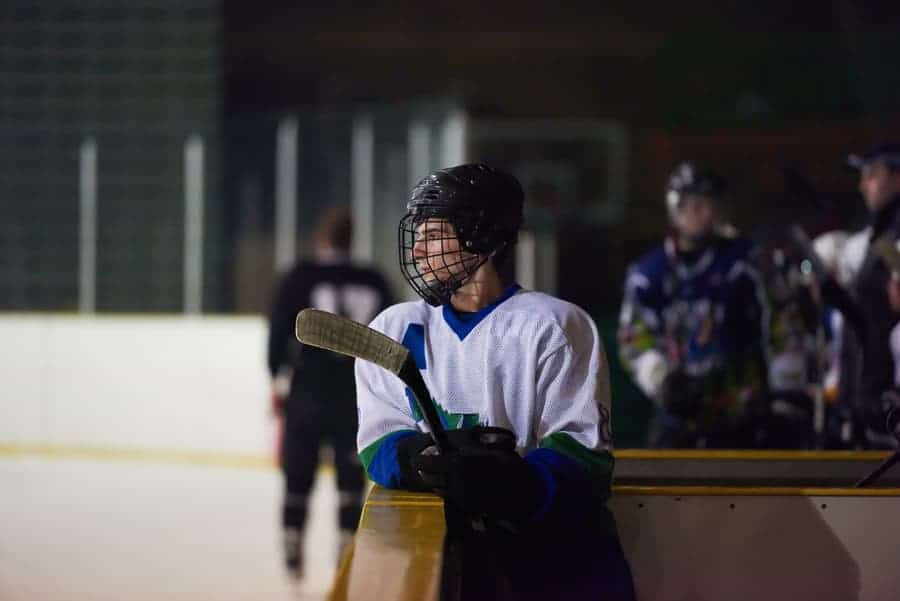
It is easy to fall into the belief that attempting to find the higher ground will not pay off, especially if your team is in a slump. That said, to create a shield against bad sportsmanship is to deflect the victim mentality every chance you can. The quickest way to this is to constantly search for solutions.
When you decide to look at your game with an eye of a fixer and not one who just accepts situations as they come to you, you change the course. Making the decision to be the solution and not the complainer (or the one being complained to), you commit to taking each moment as a teachable and learnable example, replacing the victim mentality with a growth mindset. This action silences the personal effect of negative sportsmanship.
Run up score
An unspoken rule between coaches falls along if one team is severely winning against another team, the second or third string will be brought in and the starters will rotate out. This opportunity allows the team that is the clear victor to grow their weaker players or practice new formations or plays. Simultaneously, the losing team has more of an opportunity to play against their skill level.
Poor sportsmanship is when the winning team continues to simply rack up the score, leaving in the starters and not even giving the other team a second to set up. This demotivating behavior lessons the sport and the comradery between teams. For the cost of a win, it is simply not worth it.
At some point, you will experience this from the side of the losing team. It is not a pleasant place to be and can leave you deflated. To get through this moment, try to focus on what skills or plays your opponent is doing that allows them to create the opportunities you team seems to miss. Failure is our best teacher; learn from her.
Taunt
The most obvious example of bad sportsmanship is taunting. Unfortunately, this can come from your own teammates as much as an opposing team.
When taunting takes place, it is difficult to shake it off; especially the first time it happens. Responding with anger will allow your opponents to get in your head and shake your game. This is their ultimate goal.
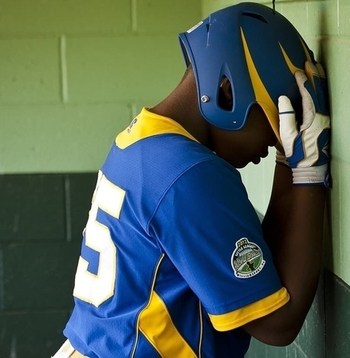
Because this is so prevalently observed, it goes without saying that it works. It rattles; it does its job. To get past it, you must expect it. Visualize your game including the taunting and create a picture of you ignoring it with razer focus on what needs done.
By not allowing the surprise factor, you lose some of the weight of the words. From there, you must determine is it really worth the distraction? Are you going to fall for the spell or will you simply push it away and remember the big picture and why you are there?
Harder is when the taunting comes from your teammates or your coach. When this happens, it is worthwhile to evaluate the situation. Are they just being mean or was there any truth to their words? If it is being used in a shaming sense, remember ultimately you have a choice in where you play. If the environment is not one in which you see changing, you have the ability to change where you play.
Take the high road
Olympic gold medalist Cody Miller said once, “real winners take the high road whether they win or lose.” When people have a chronic case of bad sportsmanship, they don’t believe this. They think only the best matter and losing is a personal reflection of who they are.
The secret to beating that mentality is a high road. You are participating, showing up, committing. There are a thousand things you could be doing other than running drill after drill, banging your body against a hard gym floor or crushing your knee caps diving for a ball, but you aren’t. You are working hard, every single day.

Simply walking onto the court means you have won. Focusing through a grueling match and not giving up means you won. Ignoring the negative self-talk sneaking up after a missed hit means you won. Being present and supportive of your teammates means you won. A win is not what makes a “winner.”
Knowing this allows you to walk the high road. You have the secret so whatever small, shallow remarks could be made have no weight. You recognize there is so much more that takes place in a team than the comments happening during a game.
Be a mindful winner
Showboating taken too far can come across as poor sportsmanship. “In your face.” “How do you like that!?” “Boom!” By gloating during victory, you have tarnished any win.
Being a mindful winner takes complete recognition of slowing down your actions in victory. As much as you want to shout to the rooftops, instead shake hands respectfully and remember the other team wanted it just as badly. If you’re lucky enough to have your locker room in a separate location than your opponent, cheer to the rooftops there.

Of course, there may be times where a full-on celebration is appropriate: championships, for example. Even in this, remember your opponent is likely holding back tears, so make sure in the moment, you pause to acknowledge without their heart, you would not have this feeling of pride. Without their showing up, you could not play.
This mindful winning begins to change the feel of the sport. Even what once may have held a lower level of sportsmanship, because you took the first step to being thoughtful in your victory, likely that team will remember the next time you play. These seeds plant changes to a better atmosphere for competition.
Play your game
Opponents giving their best to rattle you is a part of the sport. Ignore it and play your game. When they try to shake you to throw your focus, adjust to work around their attempts.
Although it may be difficult to do at first, the more you practice figuring out a work around, the more natural the next time will feel. Eventually this gives way to happening without thought.
If you become rattled to where you cannot continue to focus, ask to be taken out. When playing against a team using poor sportsmanship as a weapon, you must clear your mind, focus on the plays your team has practiced and allow their words to float around you.
Surviving Toxic Environments
Toxic environments are present in any facet of life. Be it school, sports, work, or home, knowing what a toxic environment looks like and how to work within it, or when to leave it, serves you.
When the sportsmanship is so low it borderlines bullying or a “don’t ask, do as I say” mentality, you must question if you are actually in a toxic environment. Hopefully this is not the case, but some sports teams end up in this place. If this is where the sportsmanship has led your league or team to be, there are some things you can do to manage it.
Shake it off and call it as it is
When you call a spade a spade, you are saying “I see what this is and I am naming it.” By doing this, you lessen its power. Most of the time, bad sportsmanship has a degree of manipulation.
When a person is screaming at the ref to “get glasses,” they are doing so in hopes he will call the game to the favor of the other team. If a teammate is making comments on your play, it is generally to make himself look better.
In both cases, more is being said about the deliverer of the message than about the receiver. By calling out what you see and shaking off the comments as unnecessary allows the impact to decrease. It also promotes your ability to let it go.
Don’t take it home with you
Leave it on the court. Whatever happens during a game or practice, don’t take it home with you. If you are at a game with the crowd screaming and booing to the point you cannot hear the plays, while frustrating, leave it there. The next time you think about it is when you discuss how you can work around it if it happens again.
When you bring home all the grievances that happen and hold them, you get stuck in the moment. If you are stuck you cannot move through bad sportsmanship to grow from the experience. Allow yourself to say, “wow, that was not how I expected that to go,” game plan and leave it on the court.
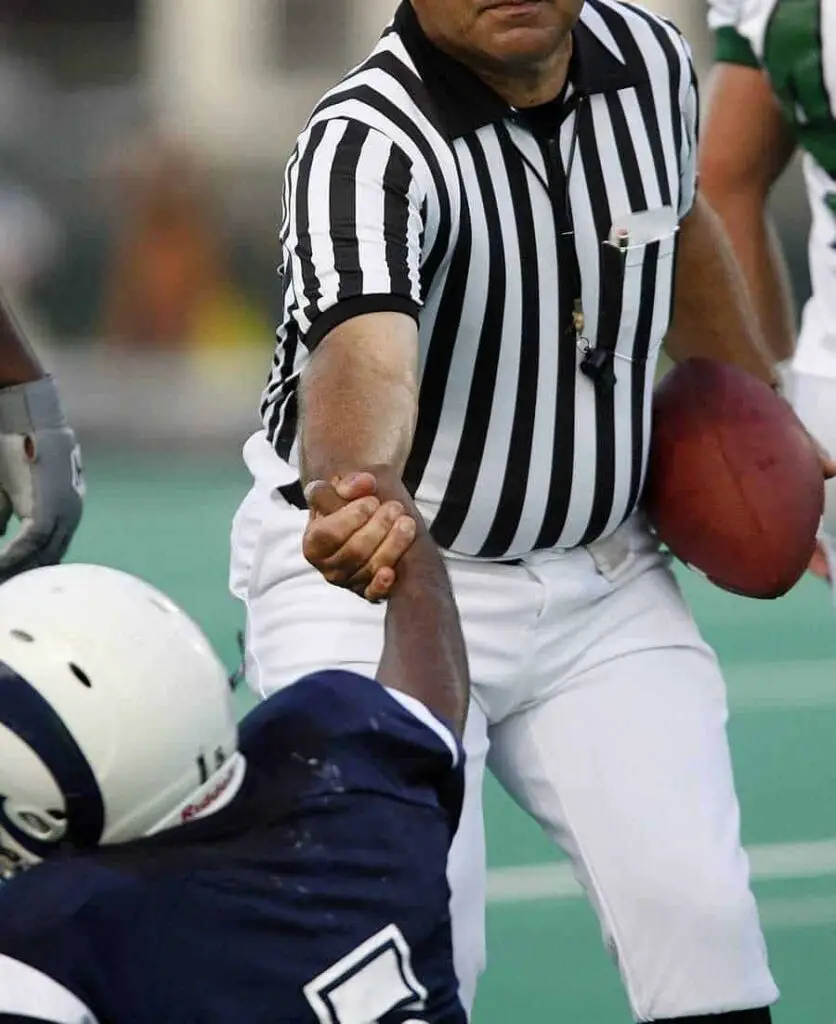
Find the good in every bad situation
Winners recognize in each negative situation, there are moments of good that shine through and teach us. Perhaps if not for the screaming crowd masking the play, you would not have learned to use signals. Maybe it is that you learned how to be there for a teammate when the taunting seemed too much.
When you look to regularly finding the positives, it becomes second nature to dissect the poor sportsmanship as not something that is happening to you, but something that has been given to you to grow from. This mindset empowers you to approach bad sportsmanship head on as an asset.
Focus on the things you can control
In the middle of a toxic environment, it may seem as if there is absolutely nothing you can control. Find the things you can and focus on them.
Perhaps you cannot control if your coach is harsh in his approach but you can control your effort in drills. You can encourage your teammates when they improve a play. You can attend camps to improve your skills.
If the league you are in does not put in an effort to ensure the play is fair, you can find another league. If within your league there are teams that focus on good sportsmanship and yours does not, look to change teams. Take control of what you can and create your experience.
Have someone you can talk to
Ideally the person you can vent to is not someone who is a part of the team. Make sure the person is safe and will keep what you say confidential. Allowing yourself to vent out the frustrations of the game, practice, etc. will give you tools to manage the environment.
Although the individual may not play your exact sport, they can emphasize with how you feel. Finding a strong individual who naturally moves toward finding solutions and not dwelling on the negative is ideal.
When you bottle up less than ideal experiences, they eventually eat at you causing you to become fixated in the moment. By opening up and sharing what you are going through with another, you dissolve the shame and allow healing to take place. You may even encounter a new way of dealing with the environment.
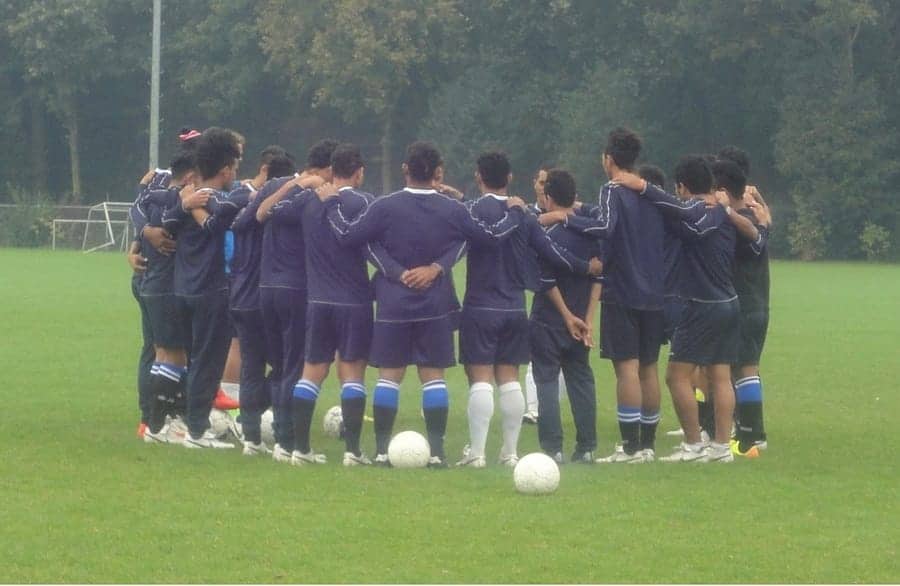
Clear up any misunderstandings
Often negativity is simply derived from a great misunderstanding. Unfortunately, when that misunderstanding carries for too long, it can harbor resentment growing into a toxic environment. The best prevention is to clear it up from the start.
When an issue with a coach or teammate arises, consider the proper and most effective way to ensure the situation is communicated and a resolution is achieved. Often the truth is found in between both sides of the misunderstanding. Keeping that in mind, admit fault where it is due and be gracious in accepting apologies.
Try your best to determine where the behavior or misunderstanding is founded. By recognizing what caused this, you can prevent it from happening again.
While your love of the game should be what matters the most, poor sportsmanship can hamper even the most steadfast athletes. By taking ownership in what you can change and doing your part in morphing a negative environment into a positive one, as well as understanding the basics of a toxic environment, you can actually use poor sportsmanship to your advantage and growth.
Click here for how to build sports team chemistry
In the words of Ralph Waldo Emerson, “Win as if you were used to it, lose as if you enjoyed it for a change.” When you embrace the bigger picture and prepare for a variety of reactions to sport, you can navigate right through poor sportsmanship and into a world that grows you not just as an athlete, but as a human being.

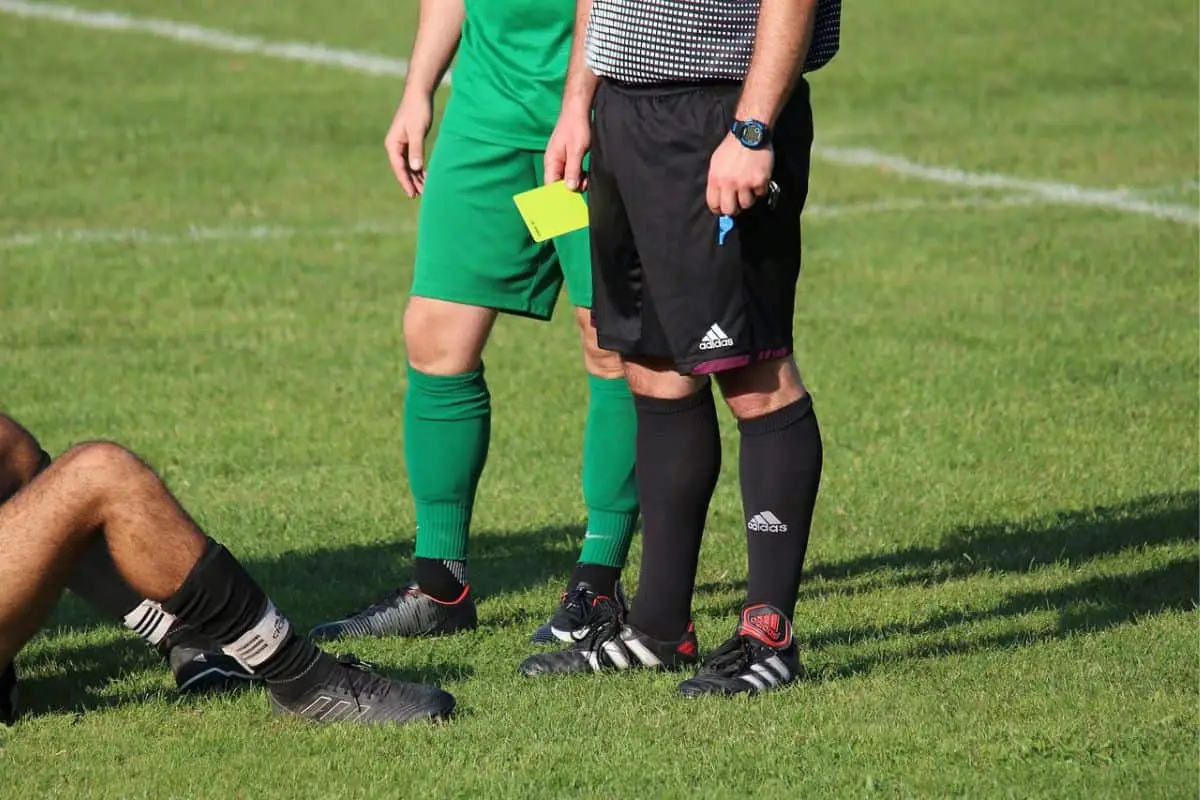
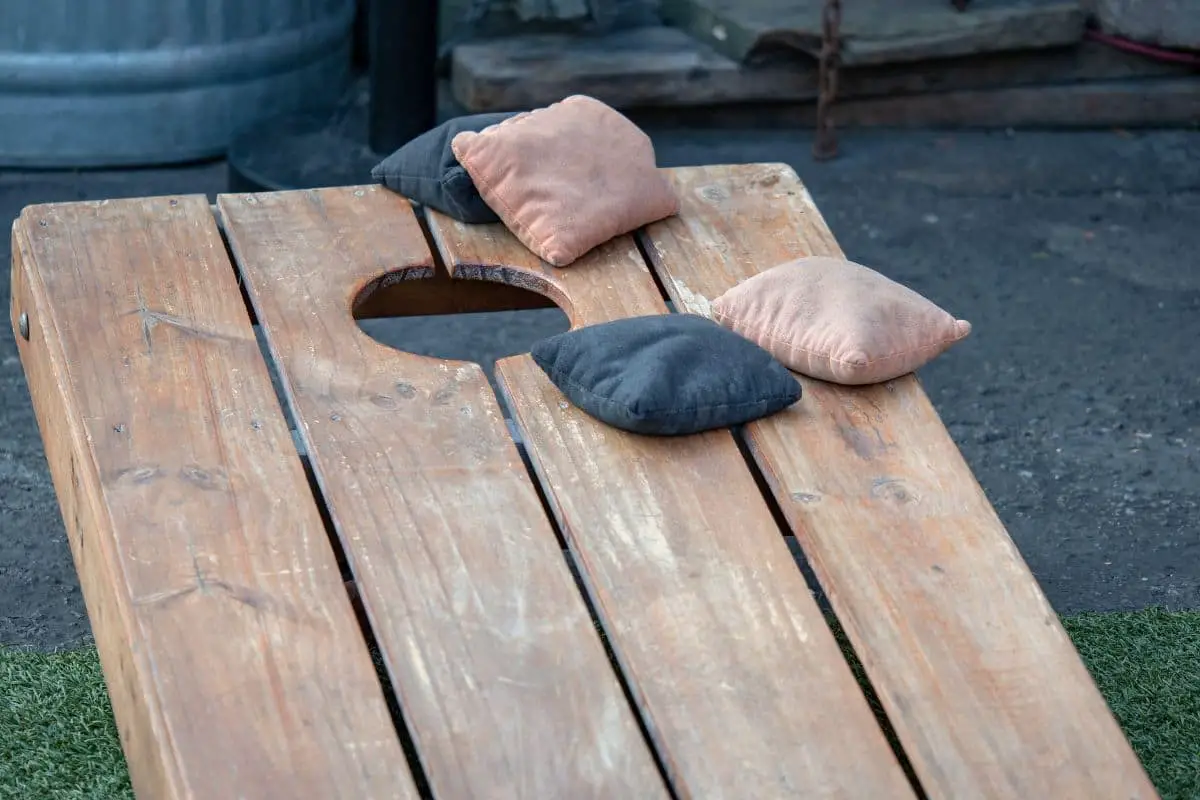
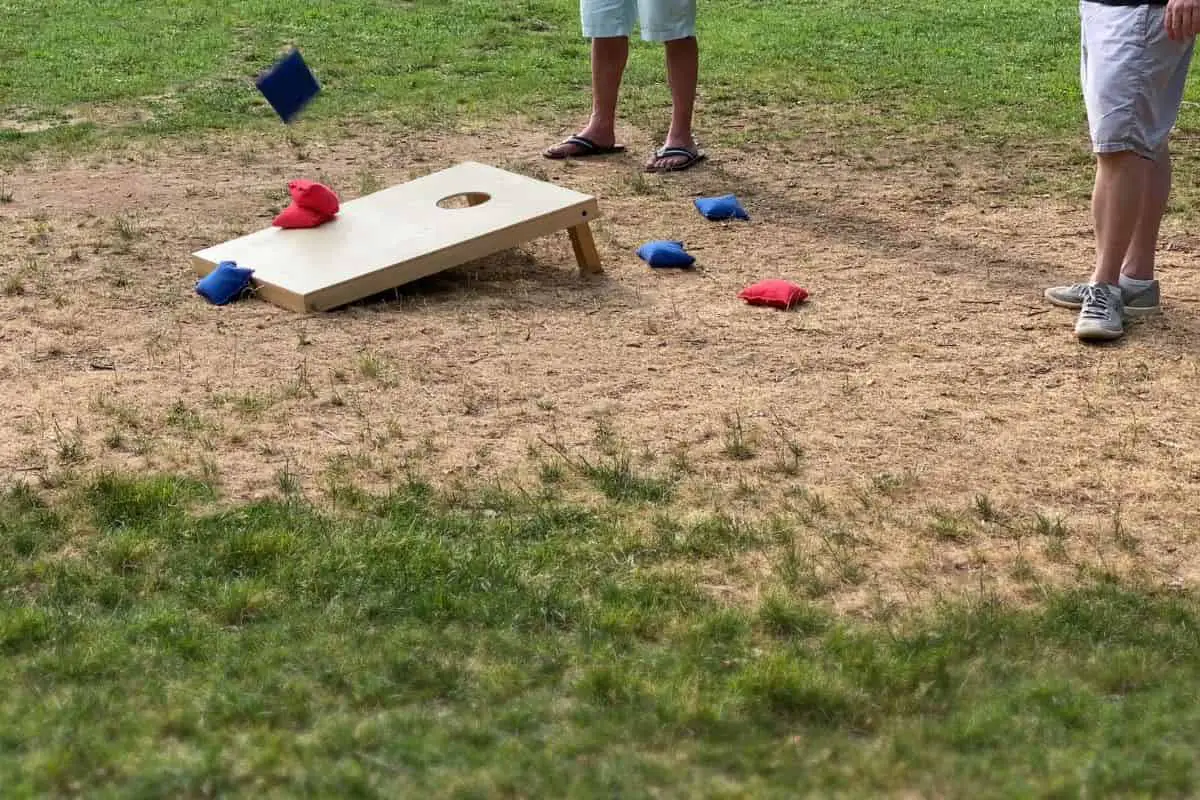

Leave a Reply
You must be logged in to post a comment.